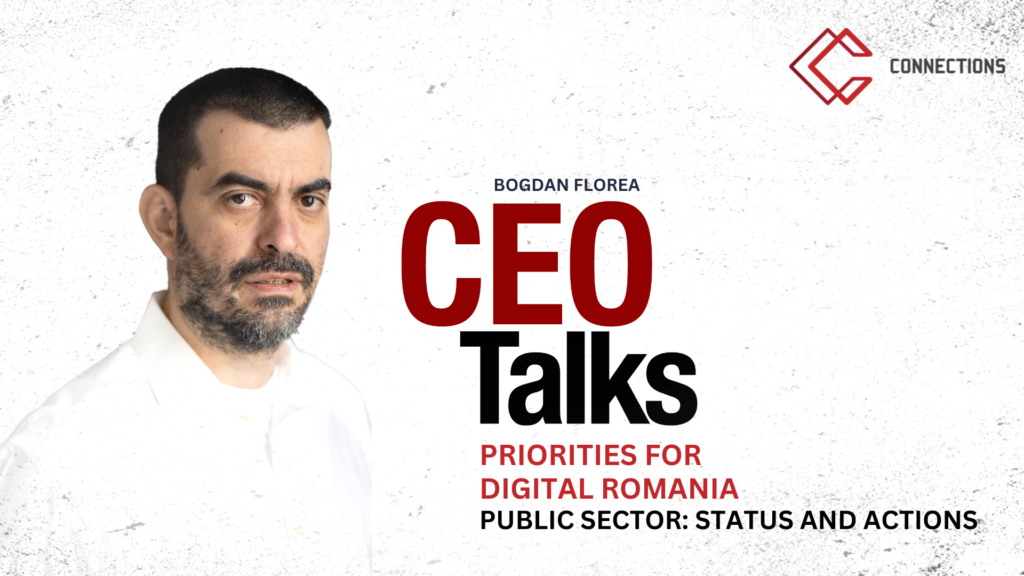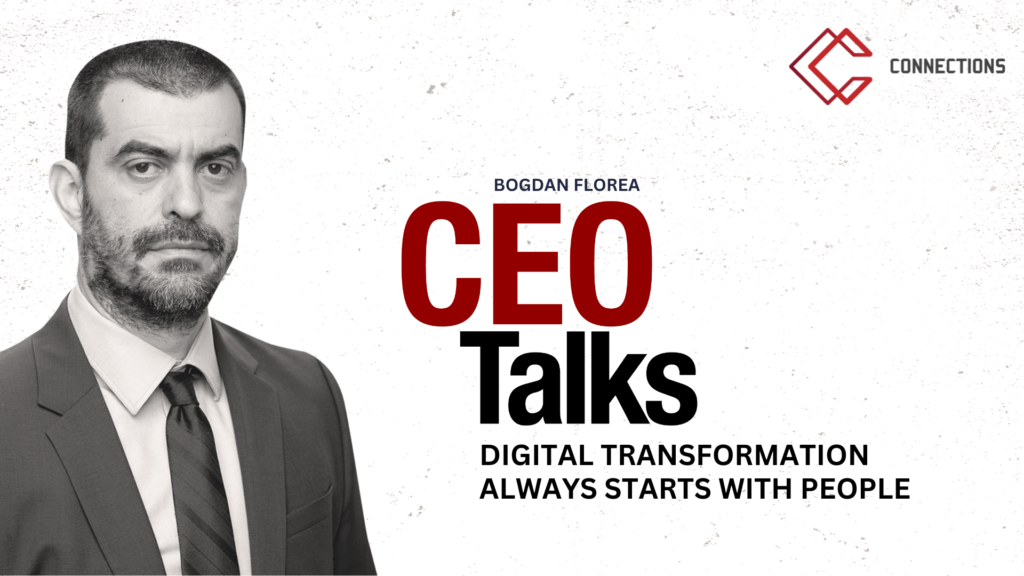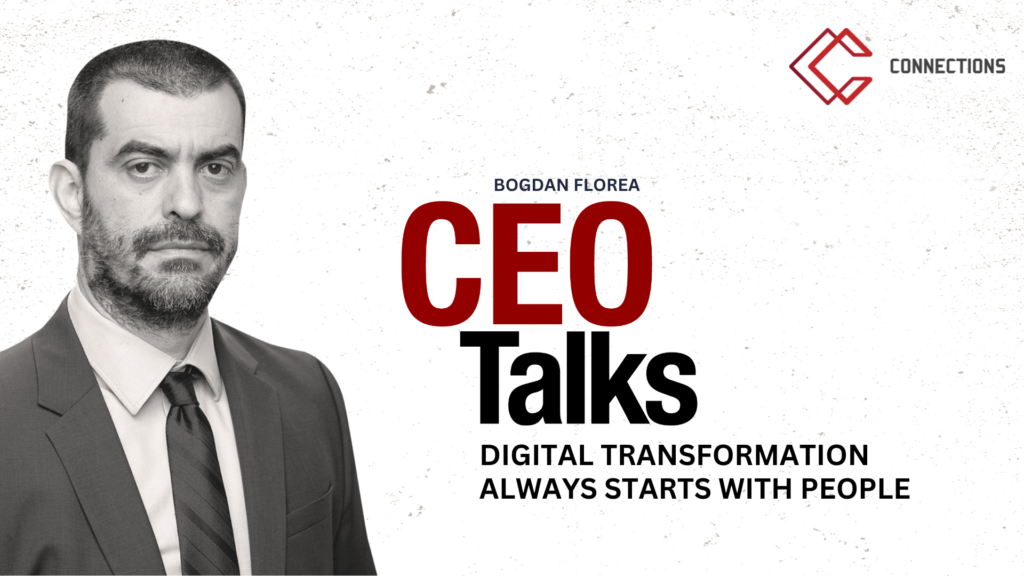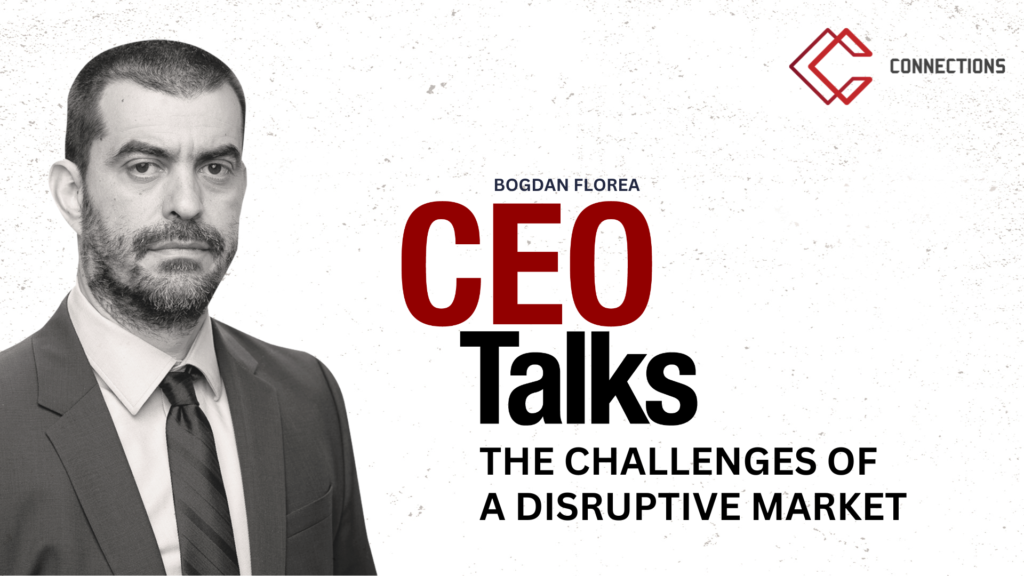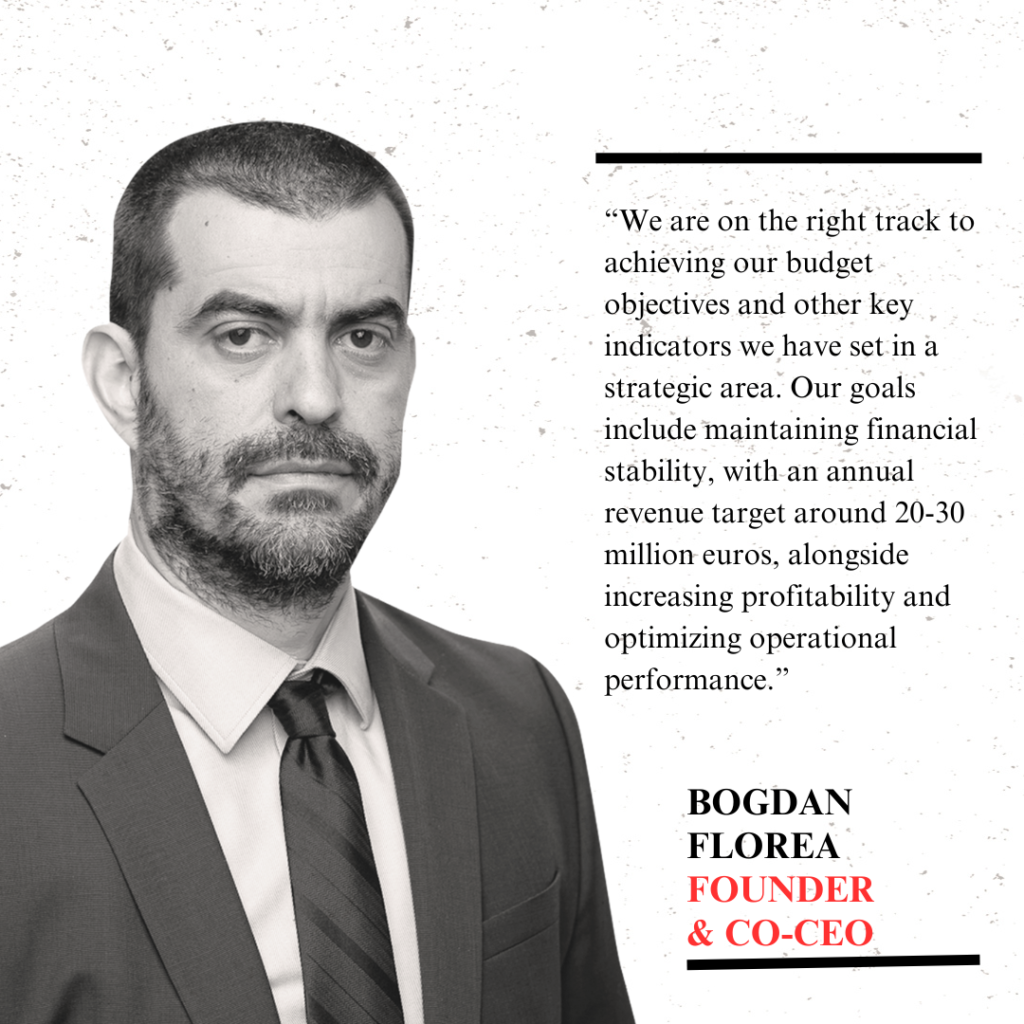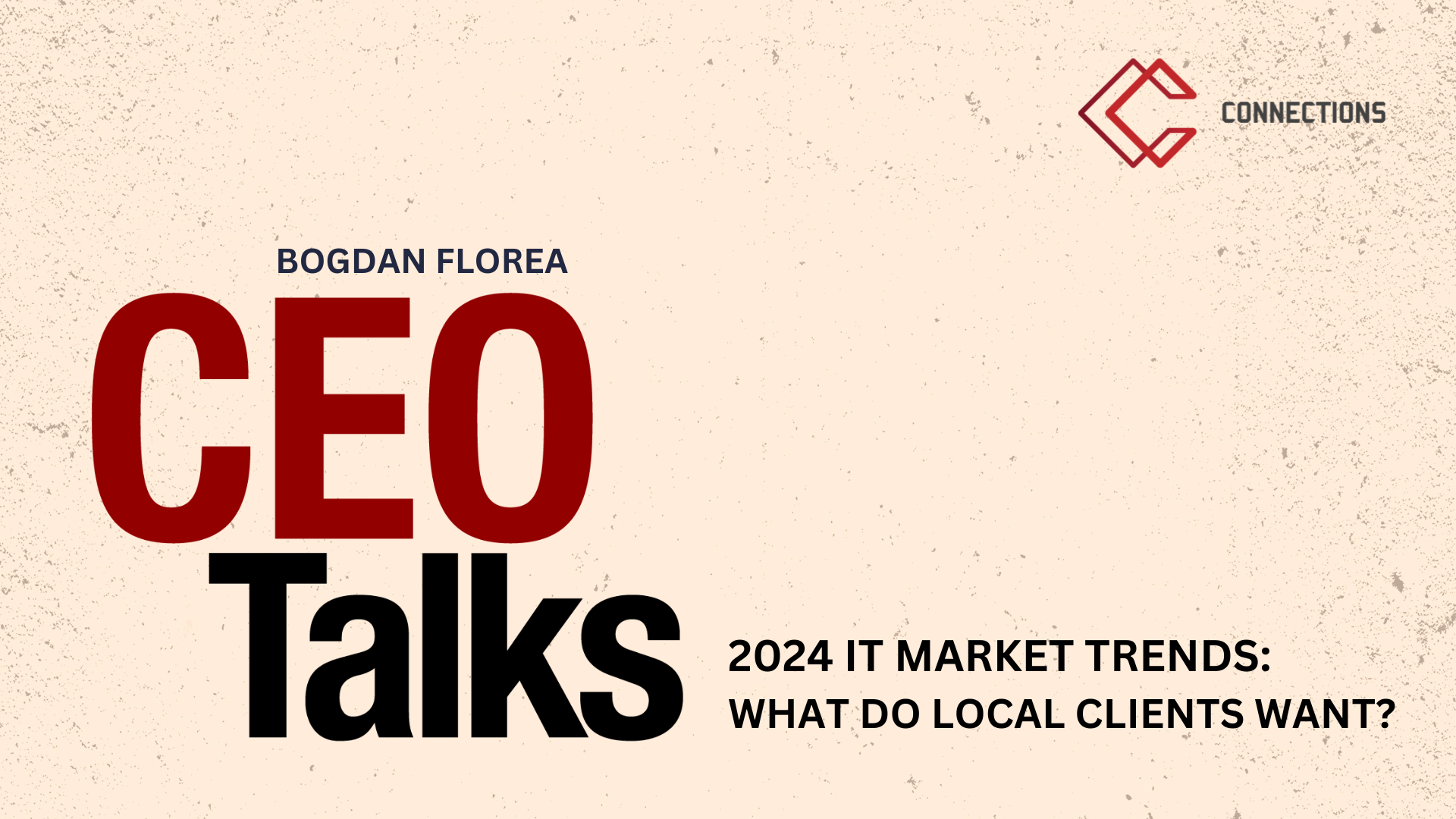
Digitalization is a vital direction for Romania’s future, but implementing this complex process brings both challenges and opportunities—not just for the state but also for private companies. Businesses must quickly adjust their strategies to remain competitive in an increasingly digital global landscape.
At the start of the year, as part of the CEO Talks series, Bogdan Florea, Founder and Co-CEO of Connections, shares a series of recommendations to help companies approach digitalization effectively and create a positive impact on their business.
ANALYSIS and PRIORITIZATION – key words for achieving impact
Bogdan advises Romanian companies to approach digitalization not just as an opportunity but as a strategic necessity. In an increasingly competitive economic environment, implementing innovative technologies is essential to remain relevant and efficient. To achieve the fastest and most visible results, companies must prioritize key areas in the initial phase that can transform internal processes, customer relationships, and financial performance. Here are three fundamental directions:
1. Automating internal processes
Digitalization is no longer an option but a necessity. Bogdan considers investments in the automation of internal workflows, software robots, and process management applications essential to remain competitive in the global market.
2. Digital interaction with government institutions Time is money, and companies need to be prepared to enhance their digital interactions with government institutions. Connections with the tax authority (ANAF) and banks can—and must—be faster and more efficient. Adopting digital solutions for data exchange will reduce bureaucracy and give companies more time to focus on their business.
3. Investing in Digital Marketing
Digital marketing is another critical area for the long-term success of companies. Investments in digital marketing not only boost visibility but also help build a strong brand presence in the global market.
An adaptable and bold private sector: implementation remains a challenge
Romania’s private sector has demonstrated remarkable merit in adopting digital technologies, a trait closely tied to the innovative spirit and openness of certain segments that position us as “early adopters.” We are eager and curious to embrace new technologies, with genuine interest in their utility and applicability to business. This curiosity goes beyond the surface, reflecting a deep exploration of technological potential, despite the risks and constraints that may arise.
However, where the private sector must invest further is in continuing the digitalization process, particularly in scaling up the implementation and adoption of these technologies.
The challenges are evident, but the opportunities are immense. In a country where innovation is within reach, why haven’t we fully unlocked our digital potential? How much longer can we risk staying on the sidelines instead of embracing the transformation that could position us among Europe’s most advanced players?
The questions are many, and the answers need to come now—because Romania’s digital future cannot wait, concludes Bogdan Florea, Founder of Connections.

